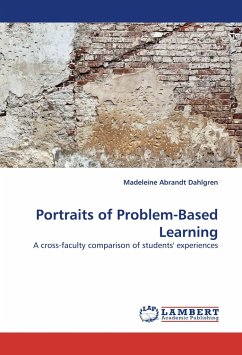Problem-based Learning has been widely used in medical or nursing education since the 1960s and is currently a major learning strategy for a variety of programs ranging from kindergarten to university. Organizations such as the World Health Organization (WHO) and World Bank recommend the use of PBL in education curricula. However, the large student numbers and limited staff often hinder interested educators combining PBL discussion with traditional teaching methods in their curricula. Without an effective and efficient tool, it seems impractical to ask an educator to handle too many PBL groups in the classrooms. This book hypothesizes that developing a cognitive software agent system can reduce the time pressure in teaching for the educators and overcome the shortage of tutors or assistants in facilitating many PBL groups. Based on the hypothesis, our study seeks to answer the research question: "How can IT facilitate PBL discussion?" Along with the context, this book proposed a cognitive model with critical-thinking, and developed three agents to work as the tutor-role in PBL.
Bitte wählen Sie Ihr Anliegen aus.
Rechnungen
Retourenschein anfordern
Bestellstatus
Storno








